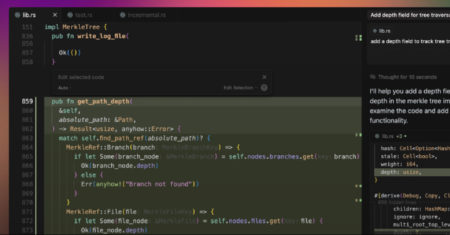CVE ID : CVE-2022-50231
Published : June 18, 2025, 11:15 a.m. | 3 hours, 16 minutes ago
Description : In the Linux kernel, the following vulnerability has been resolved:
crypto: arm64/poly1305 – fix a read out-of-bound
A kasan error was reported during fuzzing:
BUG: KASAN: slab-out-of-bounds in neon_poly1305_blocks.constprop.0+0x1b4/0x250 [poly1305_neon]
Read of size 4 at addr ffff0010e293f010 by task syz-executor.5/1646715
CPU: 4 PID: 1646715 Comm: syz-executor.5 Kdump: loaded Not tainted 5.10.0.aarch64 #1
Hardware name: Huawei TaiShan 2280 /BC11SPCD, BIOS 1.59 01/31/2019
Call trace:
dump_backtrace+0x0/0x394
show_stack+0x34/0x4c arch/arm64/kernel/stacktrace.c:196
__dump_stack lib/dump_stack.c:77 [inline]
dump_stack+0x158/0x1e4 lib/dump_stack.c:118
print_address_description.constprop.0+0x68/0x204 mm/kasan/report.c:387
__kasan_report+0xe0/0x140 mm/kasan/report.c:547
kasan_report+0x44/0xe0 mm/kasan/report.c:564
check_memory_region_inline mm/kasan/generic.c:187 [inline]
__asan_load4+0x94/0xd0 mm/kasan/generic.c:252
neon_poly1305_blocks.constprop.0+0x1b4/0x250 [poly1305_neon]
neon_poly1305_do_update+0x6c/0x15c [poly1305_neon]
neon_poly1305_update+0x9c/0x1c4 [poly1305_neon]
crypto_shash_update crypto/shash.c:131 [inline]
shash_finup_unaligned+0x84/0x15c crypto/shash.c:179
crypto_shash_finup+0x8c/0x140 crypto/shash.c:193
shash_digest_unaligned+0xb8/0xe4 crypto/shash.c:201
crypto_shash_digest+0xa4/0xfc crypto/shash.c:217
crypto_shash_tfm_digest+0xb4/0x150 crypto/shash.c:229
essiv_skcipher_setkey+0x164/0x200 [essiv]
crypto_skcipher_setkey+0xb0/0x160 crypto/skcipher.c:612
skcipher_setkey+0x3c/0x50 crypto/algif_skcipher.c:305
alg_setkey+0x114/0x2a0 crypto/af_alg.c:220
alg_setsockopt+0x19c/0x210 crypto/af_alg.c:253
__sys_setsockopt+0x190/0x2e0 net/socket.c:2123
__do_sys_setsockopt net/socket.c:2134 [inline]
__se_sys_setsockopt net/socket.c:2131 [inline]
__arm64_sys_setsockopt+0x78/0x94 net/socket.c:2131
__invoke_syscall arch/arm64/kernel/syscall.c:36 [inline]
invoke_syscall+0x64/0x100 arch/arm64/kernel/syscall.c:48
el0_svc_common.constprop.0+0x220/0x230 arch/arm64/kernel/syscall.c:155
do_el0_svc+0xb4/0xd4 arch/arm64/kernel/syscall.c:217
el0_svc+0x24/0x3c arch/arm64/kernel/entry-common.c:353
el0_sync_handler+0x160/0x164 arch/arm64/kernel/entry-common.c:369
el0_sync+0x160/0x180 arch/arm64/kernel/entry.S:683
This error can be reproduced by the following code compiled as ko on a
system with kasan enabled:
#include
#include
#include
#include
char test_data[] = “x00x01x02x03x04x05x06x07”
“x08x09x0ax0bx0cx0dx0ex0f”
“x10x11x12x13x14x15x16x17”
“x18x19x1ax1bx1cx1dx1e”;
int init(void)
{
struct crypto_shash *tfm = NULL;
char *data = NULL, *out = NULL;
tfm = crypto_alloc_shash(“poly1305”, 0, 0);
data = kmalloc(POLY1305_KEY_SIZE – 1, GFP_KERNEL);
out = kmalloc(POLY1305_DIGEST_SIZE, GFP_KERNEL);
memcpy(data, test_data, POLY1305_KEY_SIZE – 1);
crypto_shash_tfm_digest(tfm, data, POLY1305_KEY_SIZE – 1, out);
kfree(data);
kfree(out);
return 0;
}
void deinit(void)
{
}
module_init(init)
module_exit(deinit)
MODULE_LICENSE(“GPL”);
The root cause of the bug sits in neon_poly1305_blocks. The logic
neon_poly1305_blocks() performed is that if it was called with both s[]
and r[] uninitialized, it will first try to initialize them with the
data from the first “block” that it believed to be 32 bytes in length.
First 16 bytes are used as the key and the next 16 bytes for s[]. This
would lead to the aforementioned read out-of-bound. However, after
calling poly1305_init_arch(), only 16 bytes were deducted from the input
and s[] is initialized yet again with the following 16 bytes. The second
initialization of s[] is certainly redundent which indicates that the
first initialization should be for r[] only.
This patch fixes the issue by calling poly1305_init_arm64() instead o
—truncated—
Severity: 0.0 | NA
Visit the link for more details, such as CVSS details, affected products, timeline, and more…
Source: Read More
